President Ruto Seeks Strategic Trade Partnerships with South Korea to Boost Kenyan Economy
President William Ruto of Kenya is on a mission to significantly strengthen his nation’s trade relations with South Korea. This ambition was evident during a crucial meeting with South Korean President Yoon Suk Yeol, where the two leaders discussed numerous opportunities for bilateral cooperation. President Ruto highlighted that Kenya is particularly interested in enhancing collaboration in essential sectors such as technology, healthcare, and agriculture.
During their meeting, both leaders explored various possibilities for further investment and cooperation. Topics that were high on the agenda included areas like e-commerce, renewable energy, and infrastructure development. President Ruto rigorously emphasized Kenya’s strategic importance as a gateway to the expansive African market, thereby underscoring the potential benefits for South Korea in boosting its trade presence on the continent.
Potential Areas of Cooperation
The talks come on the heels of a recent visit by a South Korean delegation to Kenya. This delegation engaged in extensive explorations of opportunities for joint ventures and investments within Kenya’s manufacturing sector. As both countries seek mutual growth, there’s a sharp focus on increasing trade volumes, which currently stand at around Ksh 103 billion (approximately $850 million).
The potential for enhanced trade agreements has piqued the interest of both nations. For Kenya, leveraging South Korea’s advanced technological prowess and innovative healthcare solutions presents a significant opportunity. For South Korea, tapping into Kenya’s burgeoning agricultural markets and nurturing renewable energy projects align seamlessly with global sustainability goals.
Technology as a Key Focus Area
One of the primary sectors earmarked for enhanced cooperation is technology. Kenya has become increasingly known for its vibrant tech scene, often referred to as “Silicon Savannah.” With a young, dynamic population that is quick to adopt new technologies, Kenya presents itself as a fertile ground for technological investments.
South Korea, on the other hand, is a global leader in technology and innovation. From advanced electronics to cutting-edge software, the nation’s technological capabilities are second to none. A partnership with South Korea could propel Kenya’s tech industry to new heights, by fostering innovation and providing access to state-of-the-art technology.
Boosting the Healthcare Sector
An equally critical area of focus is healthcare. President Ruto highlighted the urgent need for enhanced healthcare infrastructure and services in Kenya. The recent global health challenges have underscored the importance of robust healthcare systems, and Kenya is keen on improving its capabilities.
South Korea’s advancements in medical technology and healthcare services could play a pivotal role in this regard. The collaboration could lead to the establishment of modern healthcare facilities in Kenya, equipped with world-class medical technologies. Additionally, training programs for healthcare professionals would ensure that Kenya is well-prepared to tackle health crises effectively.
Agriculture: The Backbone of Kenya’s Economy
Agriculture remains the backbone of Kenya’s economy, employing a significant portion of the population. President Ruto is keen on elevating this sector by incorporating advanced agricultural technologies and practices. South Korea’s expertise in this area could prove to be incredibly beneficial.
By adopting South Korean agricultural techniques, Kenya could vastly improve its crop yields and farm productivity. This would not only enhance food security but also boost exports, contributing significantly to the national economy.
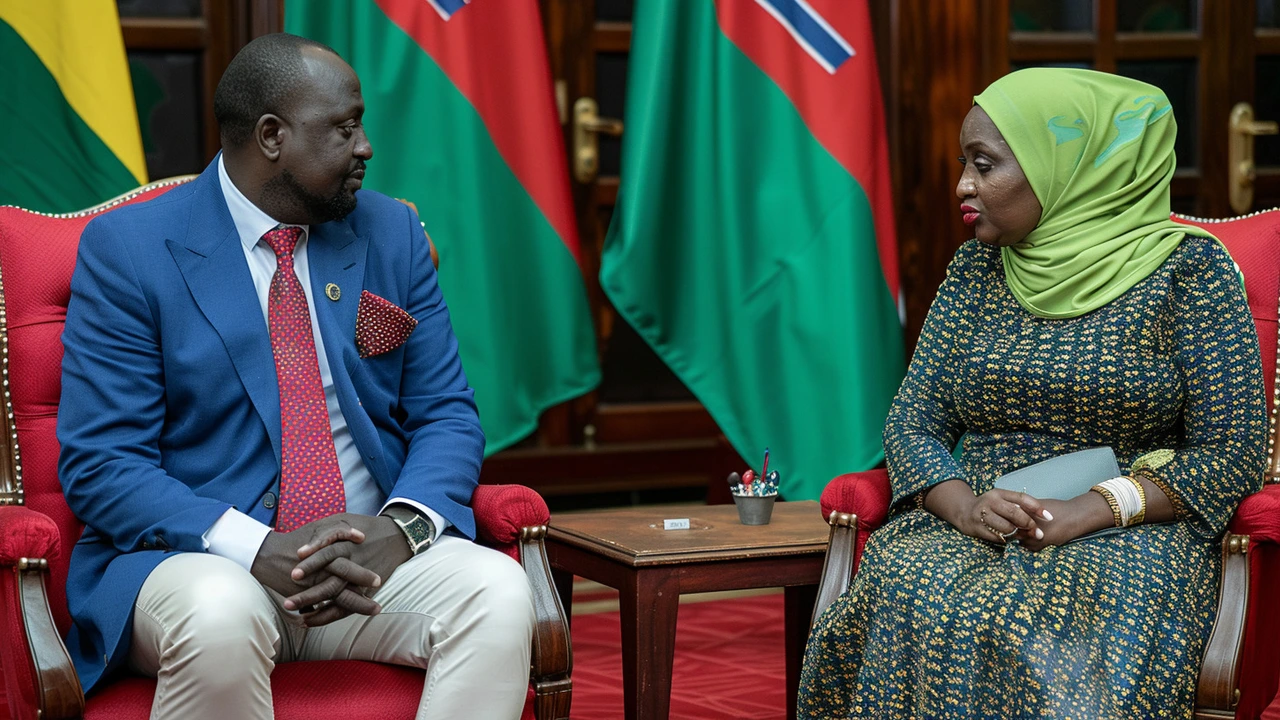
Infrastructure Development: Building the Future
Another promising area for cooperation is infrastructure development. Efficient infrastructure is the bedrock of economic growth, and Kenya has ambitious plans for its expansion. From building highways and railways to developing ports and urban infrastructure, the country aims to build a resilient and modern infrastructure network.
South Korea’s experience in constructing world-class infrastructure could catalyze these plans. Joint projects could lead to the development of crucial infrastructure that facilitates trade and improves the quality of life for Kenyan citizens.
Renewable Energy: A Sustainable Future
Renewable energy is a sector that promises immense potential for collaboration. Kenya is blessed with abundant natural resources that can be harnessed for renewable energy. By tapping into solar, wind, and geothermal energy, the country aims to build a sustainable energy future.
South Korea, with its expertise in renewable energy technologies, could play a vital role in realizing this vision. Collaborative projects could lead to the establishment of renewable energy plants, which would not only supply clean energy but also create employment opportunities for the Kenyan population.
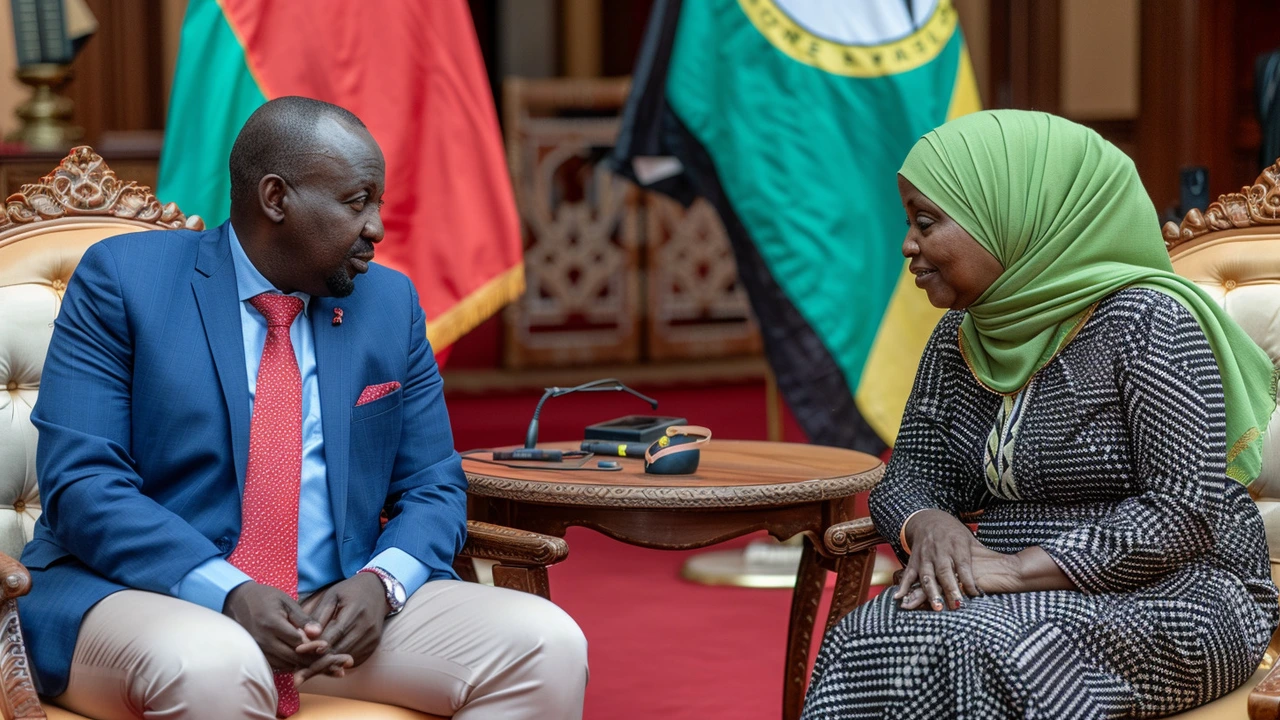
Elevating Trade Volumes
The overarching goal of these discussions is to elevate the trade volumes between Kenya and South Korea. Currently standing at approximately Ksh 103 billion (about $850 million), there’s significant room for growth. Both nations are keen on exploring avenues to diversify and expand their trade portfolios.
President Ruto's emphasis on Kenya’s strategic location adds a compelling dimension to the trade discussions. By positioning itself as a gateway to the African market, Kenya offers South Korea a valuable entry point to trade with other African nations as well. This potential for regional trade expansion makes the partnership all the more attractive.
The discussions between President Ruto and President Yoon Suk Yeol mark a significant step towards building a robust economic partnership. By focusing on critical sectors and leveraging each other’s strengths, Kenya and South Korea are poised to create a collaborative synergy that promises mutual growth and prosperity.
An Eye Towards the Future
The prospects of these trade agreements extend beyond immediate economic gains. They set the stage for a long-term partnership that could transform the economic landscapes of both countries. As Kenya looks to modernize and South Korea seeks to expand its global influence, this collaboration could serve as a blueprint for successful international trade partnerships.
With the foundation laid during these discussions, the next steps will focus on finalizing the agreements and putting plans into action. Joint task forces and committees may be established to oversee the implementation of the projects and ensure that the intended benefits are realized.
This pivotal moment in Kenya-South Korea relations heralds a future of shared progress. By harnessing their respective strengths and embracing collaborative opportunities, both nations stand to gain immensely. The path forward is one of optimism, innovation, and a collective effort towards a prosperous future.
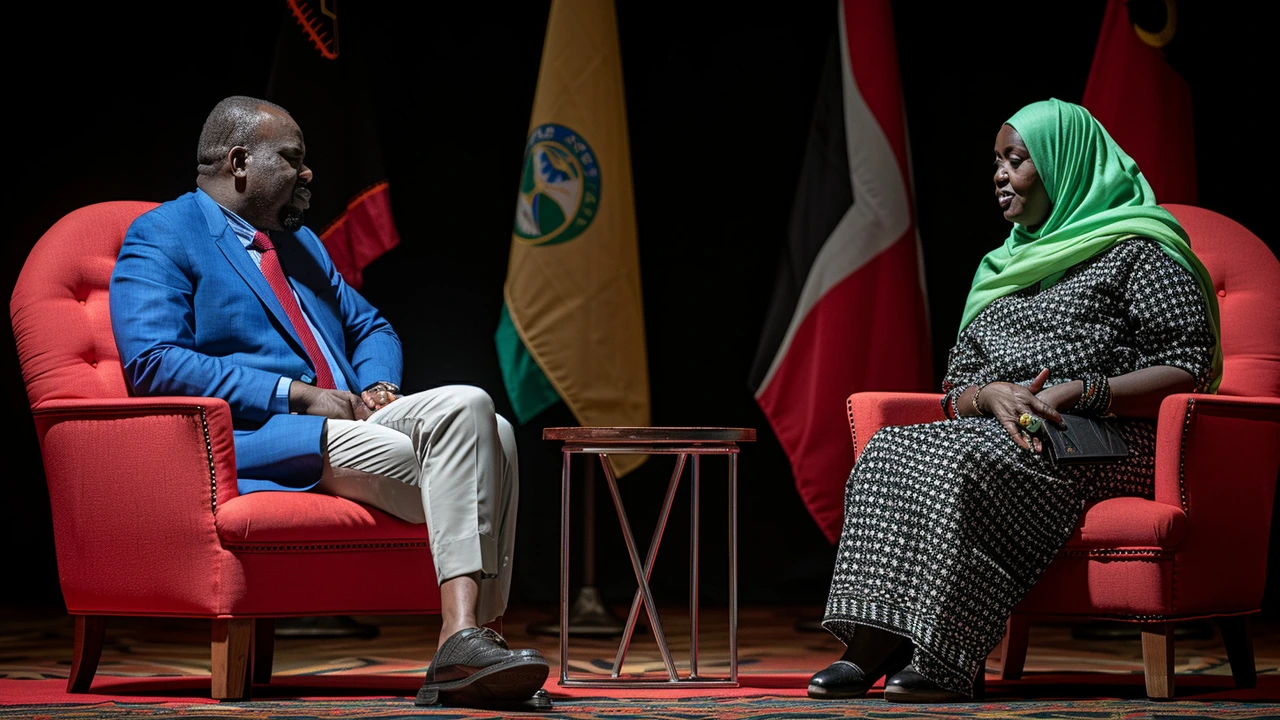


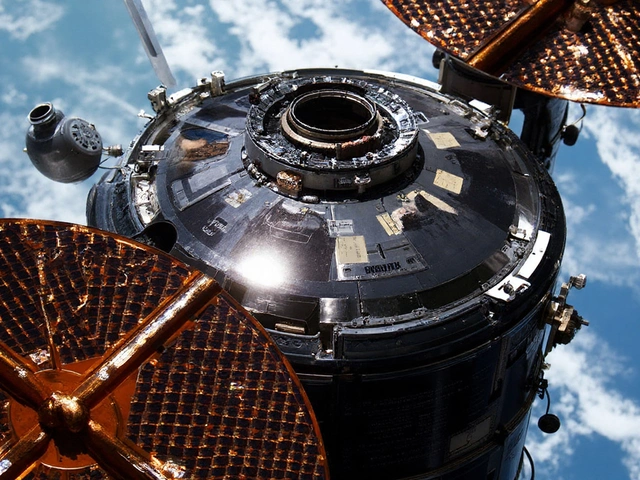

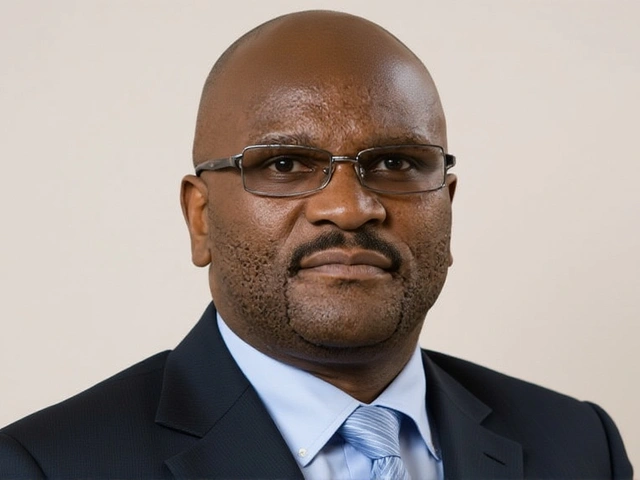
Scarlett Mirage
June 4, 2024 AT 18:46The moral imperative of nation‑building, when examined through the lens of ethical philosophy, demands that leaders prioritize egalitarian prosperity; any deviation, therefore, constitutes a breach of social contract. Kenya’s pursuit of South Korean partnership, ostensibly economic, simultaneously functions as a crucible for the cultivation of technological virtue. By integrating advanced Korean innovations, Kenyan society can transcend mere material gain and approach a higher collective consciousness. Yet, the true measure of success lies not in GDP figures, but in the equitable distribution of opportunity, health, and education across the populace. In this regard, the bilateral dialogue is as much a philosophical declaration as it is a policy agenda.
Ian Sepp
June 4, 2024 AT 19:20While I appreciate the enthusiasm expressed above, it is essential to acknowledge the practical constraints that both nations face, including budgetary limitations and regulatory hurdles, before drawing definitive conclusions about the partnership’s ethical dimensions.
Sweta Agarwal
June 4, 2024 AT 19:53Oh sure, because every trade deal magically resolves centuries‑old inequality, right? Guess we’ll just wait for the “higher collective consciousness” to arrive on a cargo ship next week.
Henry Cohen
June 4, 2024 AT 21:16i dont think this partnership gonna fix anything it just another way for korea to get cheap labor and for kenya to stay dependent on foreign tech
Mark Langdon
June 4, 2024 AT 21:50Hey, I get where you're coming from, but there’s also a chance this could spark local tech startups, create jobs, and give Kenyan engineers access to cutting‑edge tools-something we should definitely keep an eye on.
Ciara Russell-Baker
June 4, 2024 AT 22:40lol u think korea is gonna just hand over their tech? they’re gonna charge like a million for a single smartphone chip, no one’s getting free stuff here.
Aaron Samarita
June 4, 2024 AT 23:13Ugh, another “great partnership” hype train, and we’re all supposed to clap like it’s the next world peace-spoiler: it’s not.
Daisy Pimentel
June 5, 2024 AT 00:03In the grand tapestry of human endeavor, the pursuit of wealth without moral compass is a hollow quest.
Nations, like individuals, must first ask themselves what purpose they serve beyond mere accumulation of resources.
The Kenyan–Korean dialogue, when stripped of diplomatic rhetoric, reveals a deeper yearning for dignity and self‑determination.
Yet, dignity cannot be bought; it must be cultivated through education, health, and equitable access to opportunity.
South Korea’s technological prowess offers tools, but the ethical stewardship of those tools lies with Kenyan policymakers.
If those leaders prioritize short‑term gains over long‑term societal well‑being, the partnership will become a gilded cage.
Conversely, if they embed principles of justice into every contract, they can transform the “Silicon Savannah” into a beacon of sustainable progress.
The healthcare sector, for instance, is not just a market for devices but a moral arena where lives are measured against policy decisions.
Deploying advanced Korean medical equipment should be accompanied by training programs that empower local professionals, not replace them.
Agriculture, the backbone of Kenya, demands more than imported machinery; it needs a paradigm shift toward ecological stewardship.
Renewable energy projects must respect local ecosystems, lest we trade one form of exploitation for another.
Infrastructure development, while impressive on paper, can become a tool of displacement if communities are not consulted.
Ethical trade, therefore, is a balance between profit and principle, a dance where neither partner steps on the other’s toes.
The true test of this partnership will be measured not in billions of shillings, but in the reduction of poverty and inequality.
As citizens of a global village, we have a collective responsibility to hold our leaders accountable to these higher standards.
Let us hope that the dialogue evolves from lofty slogans into concrete actions that honor both humanity and the planet.
Ellen Ross
June 5, 2024 AT 00:36While your philosophical musings are noted, allow me to posit that the absence of a robust intellectual framework within Kenyan policy circles renders such idealism somewhat naïve; perhaps a more rigorous academic discourse would illuminate the path forward.
Fabian Rademacher
June 5, 2024 AT 01:26Did you ever consider that this “partnership” might be a front for a larger data‑harvesting operation, funneling Kenyan biometric info straight to Seoul’s surveillance networks?
Terrell Mack
June 5, 2024 AT 02:00Stay optimistic, folks-progress takes time, but every step counts.